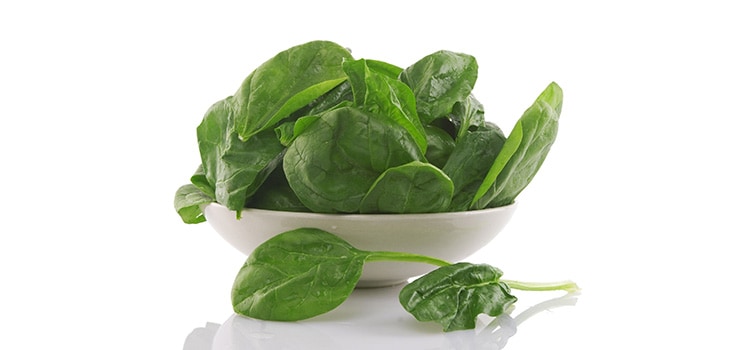Spinach Consumption Shown to Reduce Ovarian, Prostate Cancer Risk

Some foods produce unhealthy results like obesity, heart disease and even cancer. Other foods help you to avoid these health risks while simultaneously increasing the body’s natural defenses against illness and diseases like cancer. In fact, there are numerous foods that are tremendous when it comes to cancer prevention, with some research showing that spinach is among these powerful foods.
Several studies in recent years have linked the powerful compounds of spinach to far more than muscle strength. Though Popeye may have popularized the plant as a nutritious, muscle-building food, he didn’t tell us it was useful for cancer prevention and treatment.
One study from Harvard Medical Center found a connection between the intake of flavonoids and lowered risk of ovarian cancer.
Of some 67,000 women surveyed over a period of 14 years, those with the greatest intake of flavonoids (found highly concentrated in spinach) were 40% less likely to develop ovarian cancer – a disease that accounts for an estimated 239,000 new cases and 152,000 deaths worldwide annually.
Also from Harvard, apigenin was identified as the flavanoid with the most anti-ovarian cancer powers. Apigenin concentration is highest in spinach and parsley, and is also found in celery.
For prostate health, spinach offers similar benefits. Published in the Journal of Nutrition, one study found that a carotenoid called neoxanthin induces prostate cancer cell death. It also prevents their reproduction.
This year alone, the American Cancer Society estimates more than 238,000 men will be newly diagnosed with prostate cancer and nearly 30,000 will die.
And if ovarian and prostate cancer fighting wasn’t enough—there is evidence that spinach can similarly protect against breast cancer.
Researchers at the National Institute of Environmental Health Sciences studied the correlation between breast cancer risk and diets high in beta carotene and vitamin A. They found that eating spinach and carrots more than twice weekly compared to not eating them at all was associated with an odds ratio of .56.
This means that the risk of having breast cancer was reduced by 44% in the women who consumed spinach and carrots. (Cancer Epidemiology Biomarkers and Prevention, November, 1997)
Antioxidant nutrients are important for limiting damaging oxidative reactions in cells, which may predispose to the development of conditions like heart disease and cancer.
Add to these cancer-fighting benefits the fact that spinach is good for your eyesight, your waistline, and your brain health, and you’ve got a superfood for sure. Add it to salads, wraps, and green smoothies to get the most potent, raw benefits.

I juice my spinach and drink it every day!